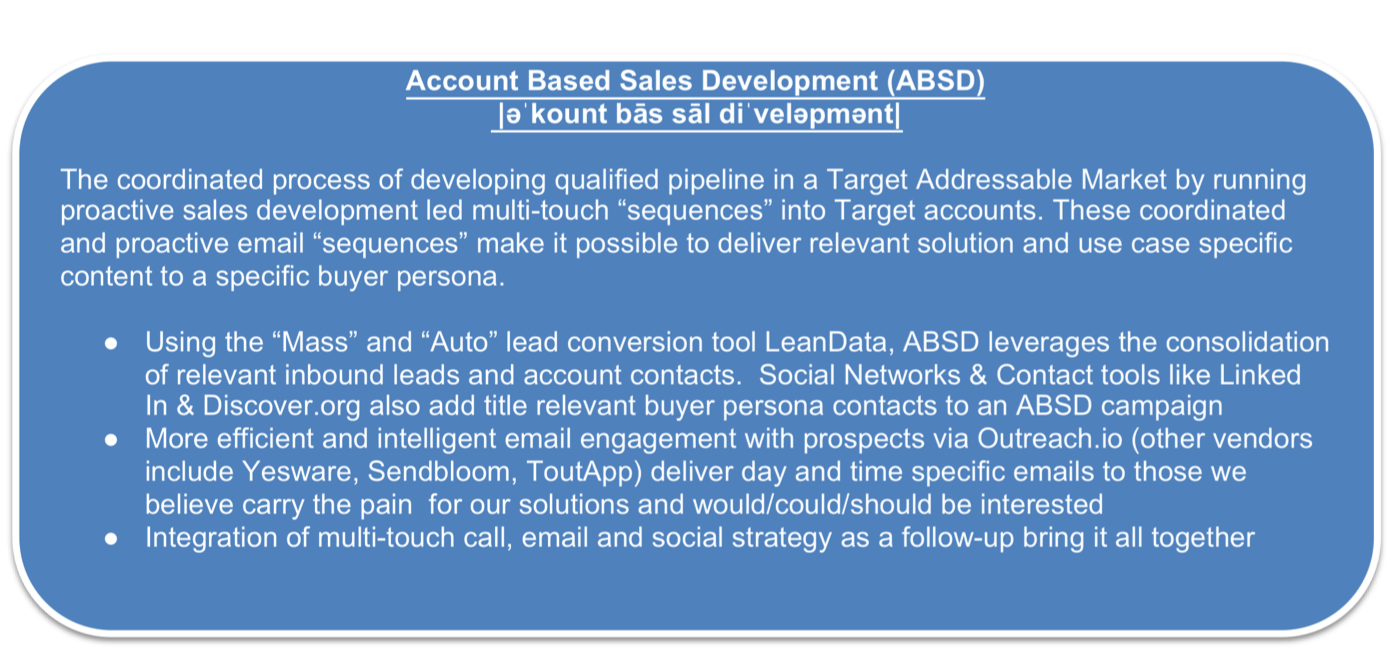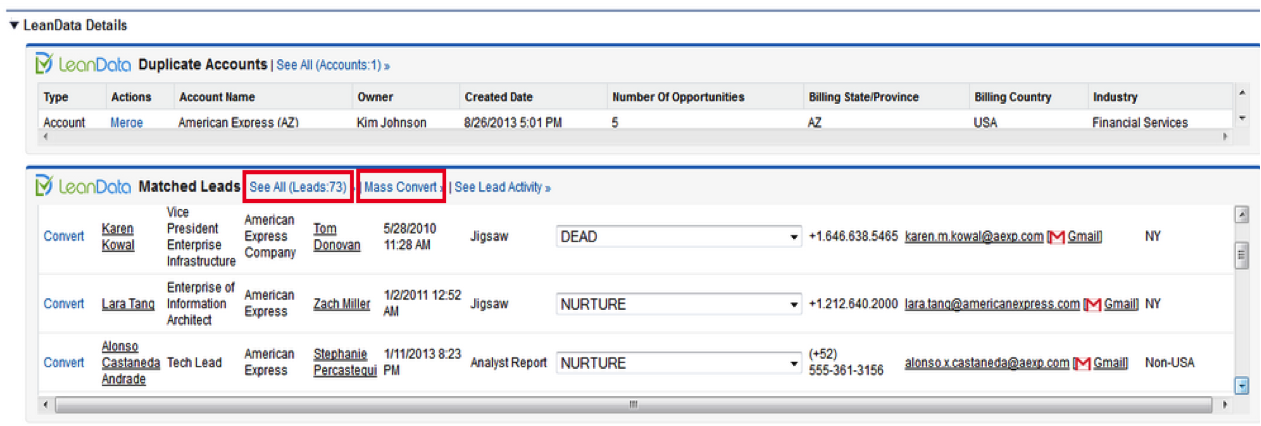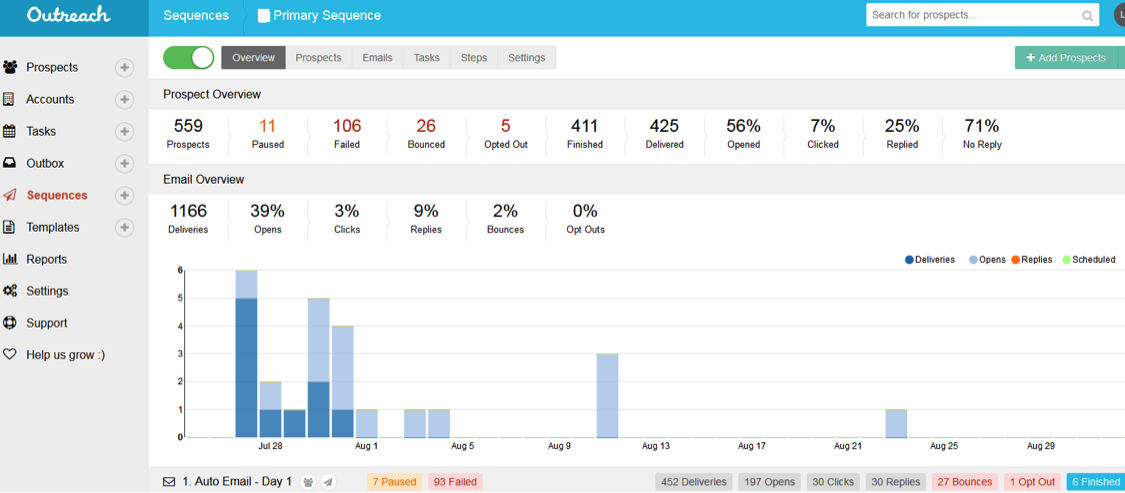Account Based Sales Development: A New Methodology in Lead Execution, Target Outbound, and Pipeline Generation
By Lars Nilsson, September 30, 2015
This post, written by True Special Advisor Lars Nilsson, was originally published in the funnelholic.
Here’s a plain and simple truth: the best sales development teams today leverage technology to perform smarter, better and faster. The proliferation of, and advances in, sales technology have presented today’s sales development teams with an opportunity to completely revolutionize the way they conduct business.
At its core, the Sales Development role remains the same as ever. Today’s Sales Development Teams, like their account development and telemarketing counterparts of the past, are specialized units focused on prospecting and building qualified pipeline for a company. They are measured by the quantity of their outreach (e.g. dials made/answered and emails sent/opened/replied to), and are typically paid on qualified meetings set up for their Outside and Inside Sales counterparts. The difference is, today’s sales development teams must be smarter and more targeted in their outreach to produce the same amount of pipeline, particularly in the Enterprise. Technology is helping today’s teams achieve this new approach, and has been for some years. Take the case of dialing as an example.
In the early days of Sales Development, a sales development rep (SDR) had to complete a hundred or more phone calls and voicemails per day hoping to “catch” someone live. Eventually, auto-dialers would make this arduous task easier, but then if nobody answered, the SDR would spend additional time leaving a pithy voice-mail in the hope that perhaps they would inspire the prospect to call them back (yeah right) or at least leave some form of audible company branded product message. InsideSales.com and other emerging technologies now allow SDR’s to pre-record voice mail messages so now even leaving voice mails can be automated and help the SDR get to his/her dial targets within an hour of starting their day.
The point is, as the business world has changed and technology has evolved, so has the art and science of Sales Development. Sales Development leaders are constantly evaluating new technologies and best practice ideas to help cover more ground while keeping resources as lean as possible. As a result, many forward thinking B2B technology companies are breeding SDR’s at the same rate as their outside quota carrying sales counterparts, making a new outbound approach possible by a different breed of Sales 2.0 vendors.
Here at Cloudera, we call this approach Account Based Sales Development (ABSD). The SDR team has refined its approach to outbound prospecting into the enterprise with the help of two cutting edge technology vendors; Outreach.io and LeanData – two companies that embody the essence of big data. The ever present and ubiquitous LinkedIn Navigator is the third pillar in our outbound “SDR technology stack”. Instead of beating on the empty phone doors we’ve seen as industry standard, we have changed our approach to rely on technology to help us understand those that would be more willing to take and accept our calls. Since implementing our ABSD strategy just 3 months ago, we have seen unprecedented results and responses. In our first try within a target account, we sent a three-email campaign using Outreach.io “sequences,” and our ABSD methodology delivered:
- 60% open rate
- 31% reply rate
- 15 net new meetings
- Entry into three new lines of business
- Two expansion opportunities within existing lines of business
- 22 hard bounces automatically purged out of SFDC
The results of all subsequent ABSD campaigns into specifically targeted enterprise accounts netted similar results; all in the coveted double digit email open and reply rates. Using broader and less targeted techniques with Marketing Automation mass emailing, typical open rates vary in the 5-8% range and reply rates in the 2-3% range. I was blown away for I had never seen anything like this in my 20 years of building lead/demand generation teams.
When I first arrived at Cloudera, I faced a “problem” unlike any other in my career: we had too many leads! In our case, it wasn’t just that we had too many leads for the SDR team to manage, but we had too many of the wrong type of leads. Allow me to elaborate…
For those of you who don’t know, Cloudera provides an open source distribution of Apache Hadoop – a pioneering and fundamentally new way of storing and processing data. It is commonly downloaded for free. In today’s hyper-connected world where more and more data is being created every day, Hadoop’s breakthrough advantages mean that businesses and organizations can now find value in data that was recently considered useless. Cloudera provides enterprise versions of this software alongside support, training, and professional services that provide a more robust enterprise-class experience. The Cloudera platform includes the leading analytic tools, simple administration technology, and compliance-ready security and governance.
Hadoop (big data) solutions are being talked about everywhere it seems, and Cloudera is at the center of it all. People are downloading research, registering for online webinars and attending our events in record numbers. We found out quickly that most leads that we captured were simply investigating our free technology, and wanted to be left in peace to learn about the technology on their own.
This goes directly against what we ask of an SDR; call 10x times, interrupt their day and push for a follow on meeting with their sales rep. In fact, not only were these individuals not interested in having conversations with us, quite a few of these same “prospects” were individuals we had no interest in either.
To sum it up, our challenge was to determine which individuals were “SDR actionable” versus those prospects who offered too low a value proposition for the dedicated attention of my SDR team.
Armed with industry specific use cases and in conjunction with their assigned Account Executive & Subject Matter Experts, Cloudera SDRs create targeted email “sequences”. These sequences are a series of concise emails that are written with the buyer persona in mind and are designed to generate qualified meetings. For example, a three-email sequence will “drip” out three emails to the same target audience approximately 2.5 days apart in hopes of getting either an email open, or better yet… a direct reply.
The steps we take are:
Step 1: Create a Single View of Each Target Account
This is critical to the success of an ABSD campaign. Integration with LeanData places a custom iframe into the Account Object and makes visible all of the unconverted leads in Salesforce.com that were never converted against the existing account. By hitting a “Mass Convert” button, all related leads will automatically convert into contacts. LeanData also makes visible any duplicate accounts that may exist in the CRM database making for easier consolidation and merging.
To ensure that leads get converted into existing accounts, we also use LeanData’s “auto-convert” functionality, which proactively converts all new inbound leads within our target market straight to the account record. By isolating our high value target account leads and automatically associating them with their respective accounts we have marginalized the manual work an SDR has to do prior to execution and have identified the highest value leads for more efficient and timely follow ups.
Today, 60% of our lead volume is auto-assigned to related accounts thus giving each SDR hours back a day to focus on inbound lead prosecution, and more time to dedicate towards outbound efforts.
Fig. 1 – LeanData’s iFrame. After integration of LeanData with Salesforce.com, the LeanData detail section can be found in the Account object of Salesforce.com. This will present for you all duplicate accounts and related lead objects that exist against that named account. In this example, it shows us that we have one duplicate account record and 73 existing lead objects that all come from the account: American Express. By simply selecting the “Mass Convert” button, you can automatically mass convert these leads into contacts against the American Express account and thus get a consolidated view of all “opt in” contacts that come from one of your target accounts.
Step 2. Identify Target Prospects Within Each Account
With visibility to all known titles in the CRM, the SDR team (with account executive (AE) coordination) is able to quickly identify other relevant stakeholders that DID NOT exist in our CRM through inbound inquiries. By using LinkedIn Navigator and Discover.org, SDRs search for people with titles relevant to big data, data architecture and “Hadoop” at the target account and build them into separate lists. The key here is to choose titles you believe carry the pain for the solution your products might solve for them.
What we end up with is everybody that has ever come to us and a target rich group of new contacts we believe will care about what we present them.
Step 3. Develop Relevant Content
SDRs work directly with their AE and a Cloudera Industry Vertical focused Subject Matter Expert (we have SME’s at Cloudera aligned to our top five industry vertical targets) to develop three separate emails designed to send in a sequence a few days apart from each other (we’ve done 2, 3 and 4 drip sequences in the past but prefer 3). The key here is to tailor the message to the specific account, account type and vertical to ensure the short, crisp, use case specific message that aligns to the target’s pain.
This level of targeted outreach wasn’t something we could do had we not been able to combine all the relevant data we had in our CRM; hugely valuable!
Step 4. Generate Outreach.io Sequences
After the emails have been drafted, the SDR loads them into Outreach.io and sets up the sequence to deploy over a week’s time. For our first few sequences we chose to have the first email go out Tuesday morning, the second on a Thursday afternoon and the third on the following Monday afternoon. Over the last few weeks, we have begun A/B testing with the number# of sequences, the days, times, and messaging of the sequences. SDR’s have become very prideful of their open and reply rates and drive each other to push the envelope on weekly performance metrics.
Fig.2 – Outreach.io screenshot showing the results of a completed three email sequence ABSD campaign that saw 56% open rate and a 25% reply rate. Interesting to note that there were 26 hard bounces and only five “opt outs” This particular ABSD campaign executed on July 28, July 30 & Aug. 1 where most of the resulting activity occurred. SDR follow-up activity resulted in nine meetings being set leading to three new opportunities being qualified and forecast for $285K.
To date, we have targeted 24 companies with individual ABSD campaigns. 86 qualified meetings have been set up resulting in 45 opportunities created rolling up $3.7M of new forecasted pipeline. As the SDR’s and AE’s get comfortable with the process and procedure of setting up each individual campaign, there’s just more pipeline to go and create. I’ve had to adjust the comp plans for SDR’s as a result of ABSD as the average number of meetings they are setting has increased by 20%. This drives not only the increase we are seeing in pipeline generating from the SDR channel, but also speaks directly to the Efficiency OKR that our CEO has concentrated the entire company on. We are doing more with less and getting the right kind of activity in our target market segment while driving more pipeline and more revenue. Beautiful!
ABSD is a derivative of the “Account Based Marketing” (ABM) movement that has been gaining momentum as of late. I just learned that ABM was coined in 2004 by ITSMA but I had not heard of it until earlier last year when Cloudera began using technology to target ads at specific buyer personas within strategic accounts. Jon Miller of Engagio and Sangram Vajre of Terminus are both building technology around ABM and I hope they plan to include more sales related functions along with Marketing functions. In my opinion, ABM should be re-coined as ABS&M as the collaboration and execution between Sales AND Marketing needs to be near perfect to be able to pull off the surgical targeting of each subsequent account with the right messages from marketing together with the right outreach, follow-up, and execution from sales. I’d also say that ABM was made possible because Marketing Automation (MA) and Sales 2.0 mashes up the main componentry of out-bounding targeted content into specific accounts with the title relevant contacts whose email and phone numbers# can now be so easily found through contact vendors (LinkedIn, Discover.org, Data.com, Netprospex).
This particular methodology was inspired by the contributions from thought leaders like Craig Rosenberg and the entire gang at the Topo. There, SDR leaders gather and bat around technology and best practice ideas and push the envelope of what is possible in today’s emerging Sales 3.0 world. Jill Rowley & Aaron Ross have been banging away for years on their convictions about outbound and social selling and I have picked up so many ideas form them as well. Props must also be given to Jim Fowler and Garth Moulton (of Jigsaw, now Data.com) for creating the first ever contact exchange allowing reps to offer contact information from their rolodex picked up from past sales cycles in return for the ability to view other rep’s rolodexes. This “buyer persona” or title relevant contact database brought new life to my Account Development team at ArcSight and accelerated pipeline growth to record new levels. This ability changed the rules of the cold prospect outreach game forever in my opinion and will continue to propel ABSD to new heights.
While we are still in the early days of ABSD here at Cloudera, I do see this as the next evolution of inside sales prospecting efforts. We finally have the technology to support the ideal process for triaging, researching, and reaching out to target contacts at specific accounts with the right messaging.
Again, if you want to learn more – TOPO has created a case documenting the process. Click here.



